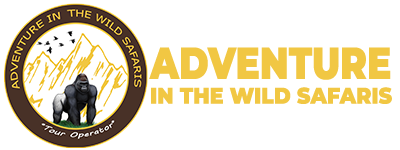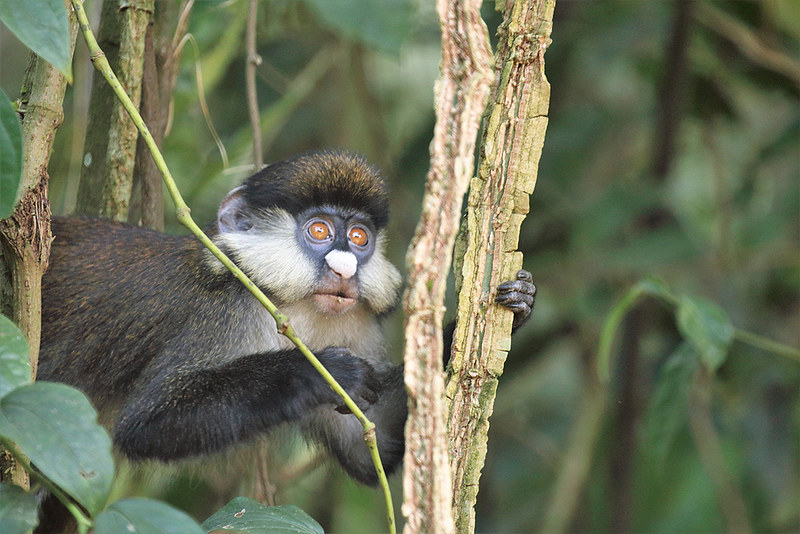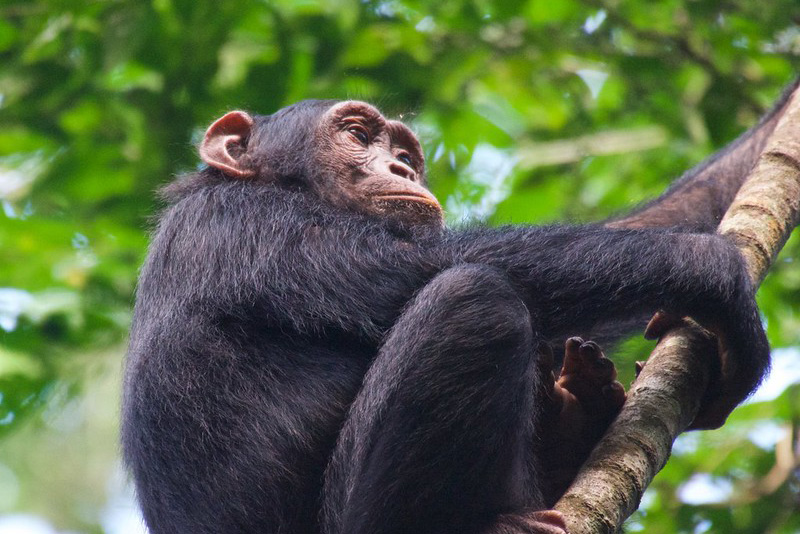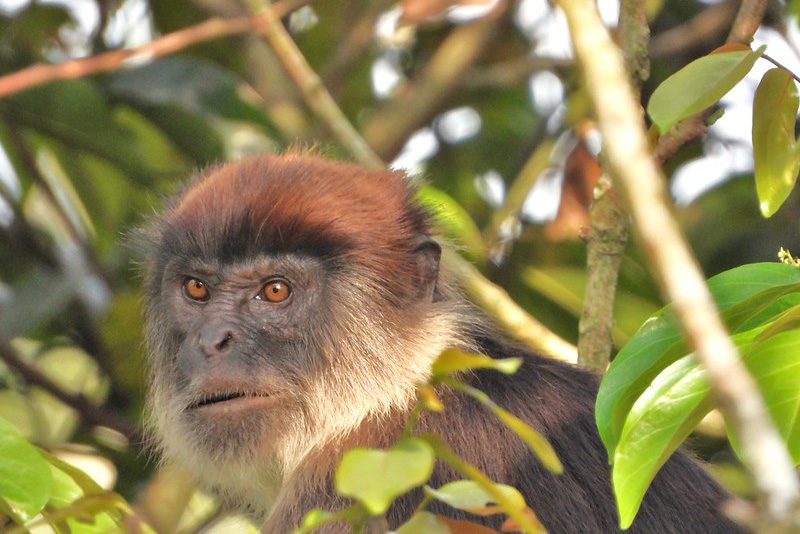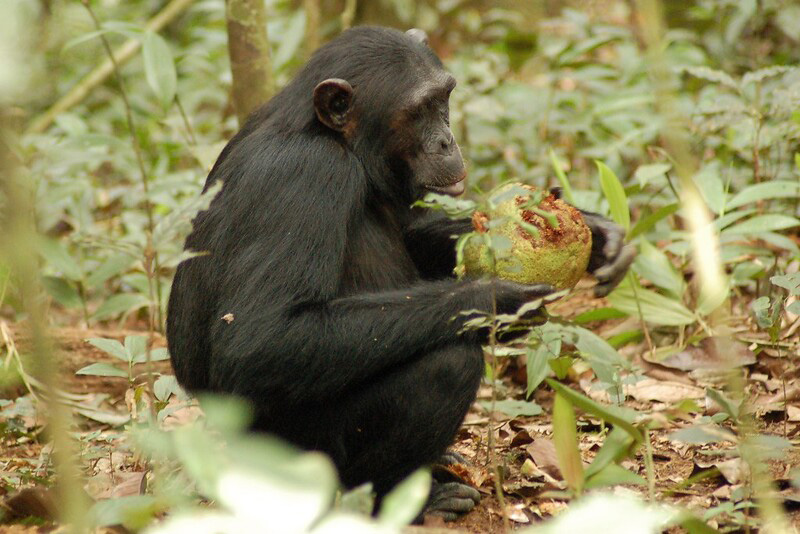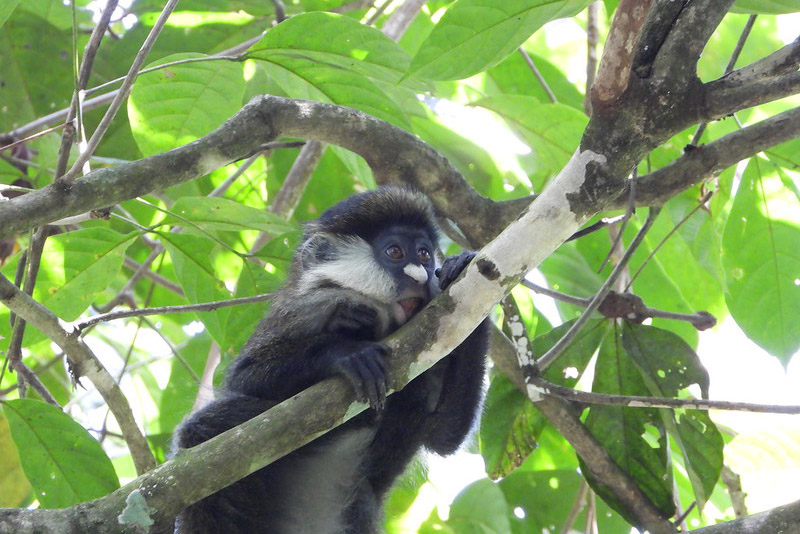Chimpanzee Trekking in Murchison Falls National Park
Budongo and Rabongo
With the most chimpanzees in Uganda, Budongo woodland is a part of the Murchison Falls conservation area. In addition, it is home to 24 kinds of animals, 450 species of trees, including mahogany, and over 360 species of birds.
Olive baboons, white and black colobus monkeys, red-tailed monkeys, and blue monkeys may be seen alongside chimpanzees. The Jane Goodall Institute oversees Kaniyo Pabidi and Busingiro, two ecotourism destinations in Budongo.
Chimpanzees and other primates including baboons, red-tailed monkeys, black and white colobus monkeys, and black-and-white colobus monkeys can be found in Rabongo Forest, an island covered in tropical river forest. Since there are fewer chimpanzee families in Rabongo than in Budongo, chimpanzee trekking is less frequent.
Chimpanzee Habituation Experience In Murchison Falls National Park
Chimpanzee Habituation Experience
You can take part in the chimpanzee habituation experience if you want to spend a little more time with the apes. Breakfast is first thing in the morning before you leave for your guide’s meeting at 6 a.m.
From there, you may locate the location of the chimpanzees’ previous night’s nest-building. From the time the chimpanzees awaken (about 6/6.30am) until they begin to construct their new nests for the night, you will spend the day with them, observing them in their natural environment.
The purpose of this interaction is to assist the chimpanzees get used to and feel at ease around people. Only Kibale National Park and Budongo Forest in Murchison offer the Ugandan chimpanzee habituation experience.
What Does a Typical Day Of Trekking Entail?
Chimp trekking is offered twice daily at 7am and 3pm. You must show up at the Kaniyo Pabidi eco-site, where you will receive a trek briefing.
From there, you will travel into the bush on trails while being accompanied by a Uganda Wildlife Authority (UWA) guide.
A one-hour chimpanzee observation break is included in the three-hour trip.
When Is The Best Time To Go?
Chimpanzee trekking is best done between October and January. The pathways are dry, the grass is short, and the fruits are maturing throughout these months. As food and water become more scarce, the chimps may go deeper into the jungle, making it harder to notice them.
Given that the weather is cooler and less rainy in June and July, there is intense rivalry for lodging and permits. Therefore, be sure to make reservations well in advance if you want to travel during this time.
How much does it cost?
Before you may go on a chimp trek, you must get a permit. They are available at the UWA offices and, as of this writing, cost $85 apiece. There are only 16 chimp trekking permits available per day, and you must be at least 15 years old to purchase one.
The licenses currently cost $220 if you want to participate in the chimpanzee habituation experience.
All of this is taken care of for you if you book your vacation with us.
What do I need to pack?
Here is a quick checklist of items to pack for your trek, but if you book with us, we will email you a comprehensive kit list before your trip:
- Breathable, waterproof pants
- A lightweight waterproof jacket, a quick-drying long-sleeved T-shirt, and a cap
- Hefty so reliable set of hiking boots
- Sunglasses
- Gloves
- Rucksack.
- canned water.
- sun block.
- pest deterrent.
- soap and water.
- Camera and phone.
Where can I stay?
Three areas make up the lodging choices in the Murchison Falls National Park: the Albert Nile, Paraa and the Victoria Nile, and Kaniyo Pabidi and the Masindi road.
These lodges may accommodate a variety of budgets, from the most basic to the most extravagant. Costs per night range from $40 to $500.
Which lodging is best for you will depend on a variety of criteria, including your spending limit, the size of your group, and the length of your stay.
What else can I do at Murchison falls?
The best safari location in Uganda is Murchison Falls National Park. It is one of the most thrilling wilderness places on the western safari circuit because to the variety of habitats, wildlife populations, and natural vistas.
With more than 76 species of mammals and 451 species of birds, it is Uganda’s biggest safari park. Murchison’s game drives provide good opportunities to see animals. Four of the Big Five live in the park: lions, buffalo, elephants, and leopards.
The Nile River cuts through the park as it flows past falls and cascades on its way to Lake Albert. On a boat tour down the river, you can see crocodiles, hippos, and lots of waterfowl.
A three-day safari in one of Uganda’s most thrilling national parks includes chimp trekking in the Budongo Forest. After a day of exploration, there are many chic and upscale resorts that are the ideal places to unwind. Although leaving Murchison will be difficult, there is still so much of Uganda to discover.
